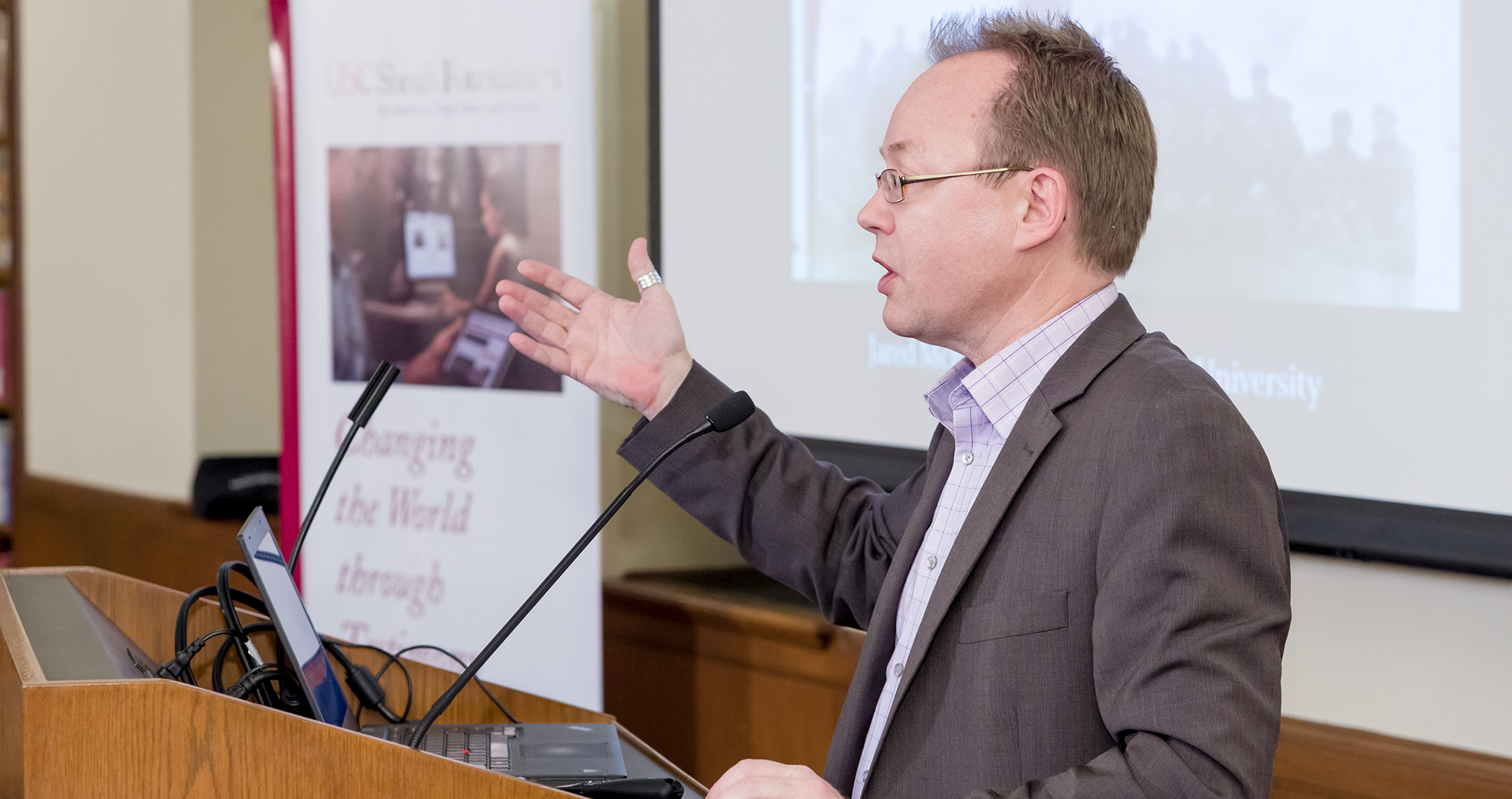Wolf Gruner to Present at Armenian Genocide Conference in Berlin

Wolf Gruner, director of the USC Shoah Foundation Center for Advanced Genocide Research, will present a paper on the effect of the Armenian Genocide on the Third Reich at the Gender, Memory and Genocide conference at the Berlin Institute of Technology this week.
The conference is presented by the International Consortium for Research on Antisemitism and Racism (ICRAR) and marks the 100th anniversary of the Armenian Genocide. It is focused on issues of gender and memory of genocide, as well as how gendered aspects of Armenian Genocide are situated in the larger history of genocides and in relation to the Holocaust.
Gruner’s paper investigates what Jews and Germans in the Third Reich knew about the Armenian Genocide. Although a famous quote in a speech Adolf Hitler gave in 1939 suggests that the Armenian Genocide had been forgotten by the 1930s, German pacifist Heinrich Verbücher wrote in 1930 that “the tragedy of 1915 seems to us to have been the bloodiest and most atrocious mystery in history.” Gruner demonstrates that discussion about the Armenian Genocide was actually ongoing in Germany, in newspapers, magazines, books, poems, encyclopedias, memoirs, and more. In fact, German Jews often referred to the “Armenian Atrocities” in response to their own persecution in Nazi Germany.
The paper explores what people knew in Germany after World War I, if and how gender played a role in the public discourse, and discloses how German Jews responded to the threat of Nazi persecution by referring to the “Armenian atrocities.”
Gruner has just begun a two-month residency at the Berlin-Brandenburg Center for Jewish Studies, awarded by the German Academic Exchange Program (DAAD). Gruner’s research during the fellowship will focus on immediate post-war awareness of individual Jewish resistance during World War II, and how this was eclipsed by perceptions of Jewish passivity. His work will also deal with suppressed memories, which fits into the Center’s thematic focal point on memory.
Like this article? Get our e-newsletter.
Be the first to learn about new articles and personal stories like the one you've just read.